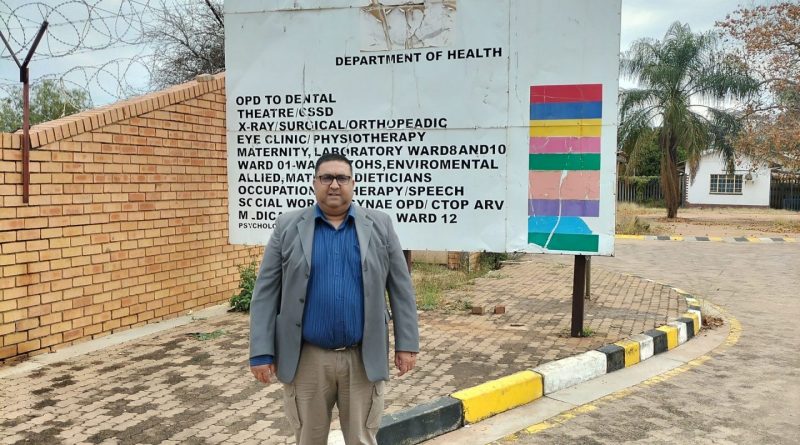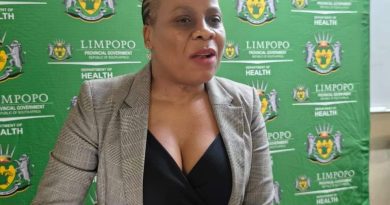Power crisis hit Philadelphia Hospital
Dennilton
The Democratic Alliance (DA) in Limpopo has written to Limpopo Health MEC, Dr Phophi Ramathuba, to urgently address the broken generator at Philadelphia Hospital, which leaves the hospital without power during load-shedding.
The party said it has made the discovery during an oversight inspection conducted on Wednesday 21 September.
According to the party, it was revealed during the inspection that the hospital has not had a functioning generator since 17 September.
“There have been numerous complaints from hospital staff that it is completely dark in the hospital during load-shedding and it badly affects the operating theatre, ICU, casualty and neonatal unit. Staff indicated that they end up using their own lights,” said Risham Maharaj MPL DA Limpopo Spokesperson for Health.
Maharaj went on and said the staff also indicated that some of the mortuary fridges have been damaged by load-shedding and it has also affected the storage of certain medicines in the pharmacy.
“Complaints from community members also seemingly indicate that there is lower capacity to treat patients during load-shedding with no generator,” he said.
According to Maharaj, when confronted, the hospital management indicated that the generator purchased in 2006, had a mechanical breakdown due to the increased load-shedding and they were in the process of assessing whether to repair or to purchase a new generator.
“They also indicated that ICU cases were being diverted to other hospitals like Mankweng, Matlala and Groblersdal Hospital in the interim as a contingency. It is clear that the increased pressure on the energy grid and the rolling blackouts risks the health of citizens that depend on Limpopo’s public healthcare facilities,” explained Maharaj.
He added that it is unacceptable for a hospital to go 6 days without a generator for back-up power and even with contingencies in place there is a risk of losing lives while transporting these critically ill patients to other hospitals.
“Philadelphia hospital is already currently facing 82 cases of medical legal claims in excess of R650 million, which is the highest in the Sekhukhune District. Ramathuba must urgently assist the hospital management in addressing the generator issue as well as staff and community concerns,” he said.
A concerned community leader, Ali Maloba, said the conditions in the hospital may potentially increase the risk of foodborne diseases for a variety of reasons, from dirty utensils to food not being kept fresh.
“A well-lit environment is of paramount importance to any medical facility, according to the regulations, hospitals are required to provide lighting in maternity delivery rooms, operating rooms, ward corridors and critical care areas during power failures, with this kind of situation is highly impossible,” he said.
He said the conditions will also affect the storage room wherein, various medications, vaccines and blood products need to be stored within specific temperature ranges.
“The efficacy and safety of these products may be compromised during prolonged and unpredictable power outages, with this kind of situation the department is running at loss,” he said.
Maloba said they are more worried about erratic temperatures in hospital mortuaries that may accelerate the decomposition of corpses, which may potentially compromise post-mortem examination, delay the burial of the deceased and potentially increase the risk of spread of infection.
“This situation will definitely lead to families harassing the nurses and officials not Eskom, accusing them of negligence,” he said.
According to Maloba, loss of communication during power outages, presents a great challenge, which includes but is not limited to an inability to recharge cellular phones, inadequate network signals and loss of internal electrically dependent telephonic systems, where most hospitals in Sekhukhune uses Telkom emergency line that requires electricity to be active.
“Patients, family members and other members of the public may be unable to communicate with the affected hospital or clinic, it must be noted that all the hospitals and clinics in Sekhukhune during load-shedding are not reachable on the emergency line because the line depends on the electricity,” he said.
Maloba said the situation is also affecting staff morale, which plays an important role in the execution of professional duties, particularly among those employed in the healthcare industry, as a result of load-shedding and various stages of power outages.
“Hospitals in Sekhukhune District are buckling under pressure, this has created more strain on the already over stretched Sekhukhune healthcare system,” he said.
Limpopo Department of Health Spokesperson, Neil Shikwambana, could not respond to the publication’s WhatsApp messages and phone calls when the paper attempting to get a comment.




